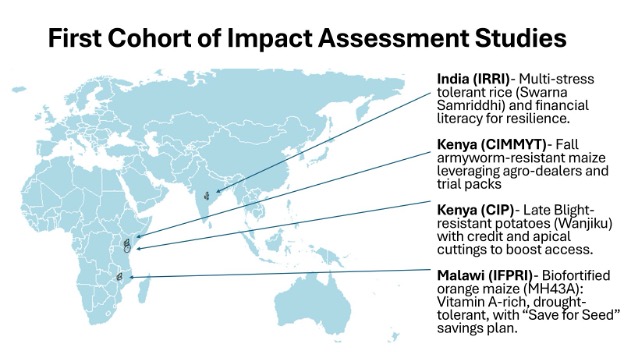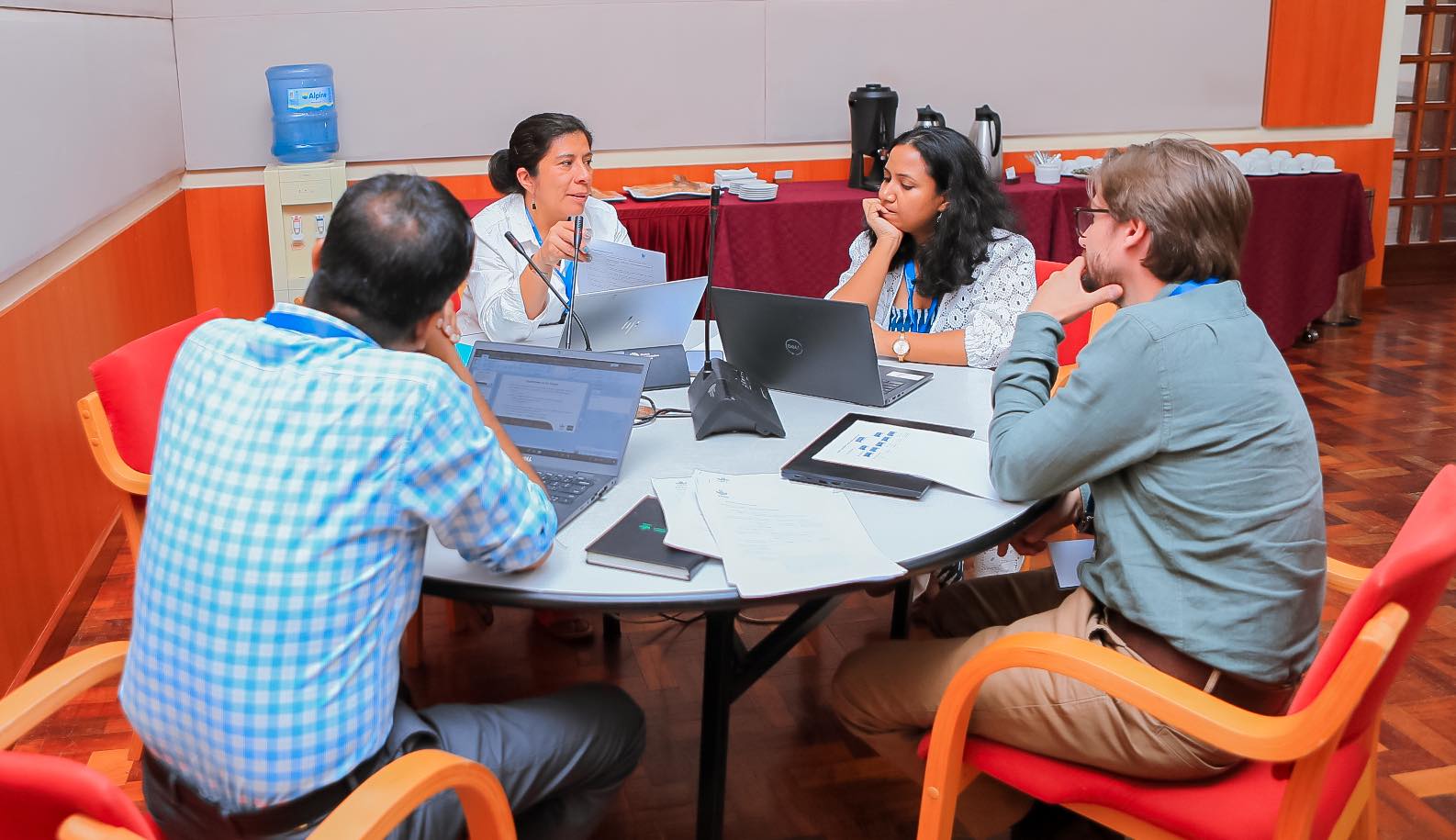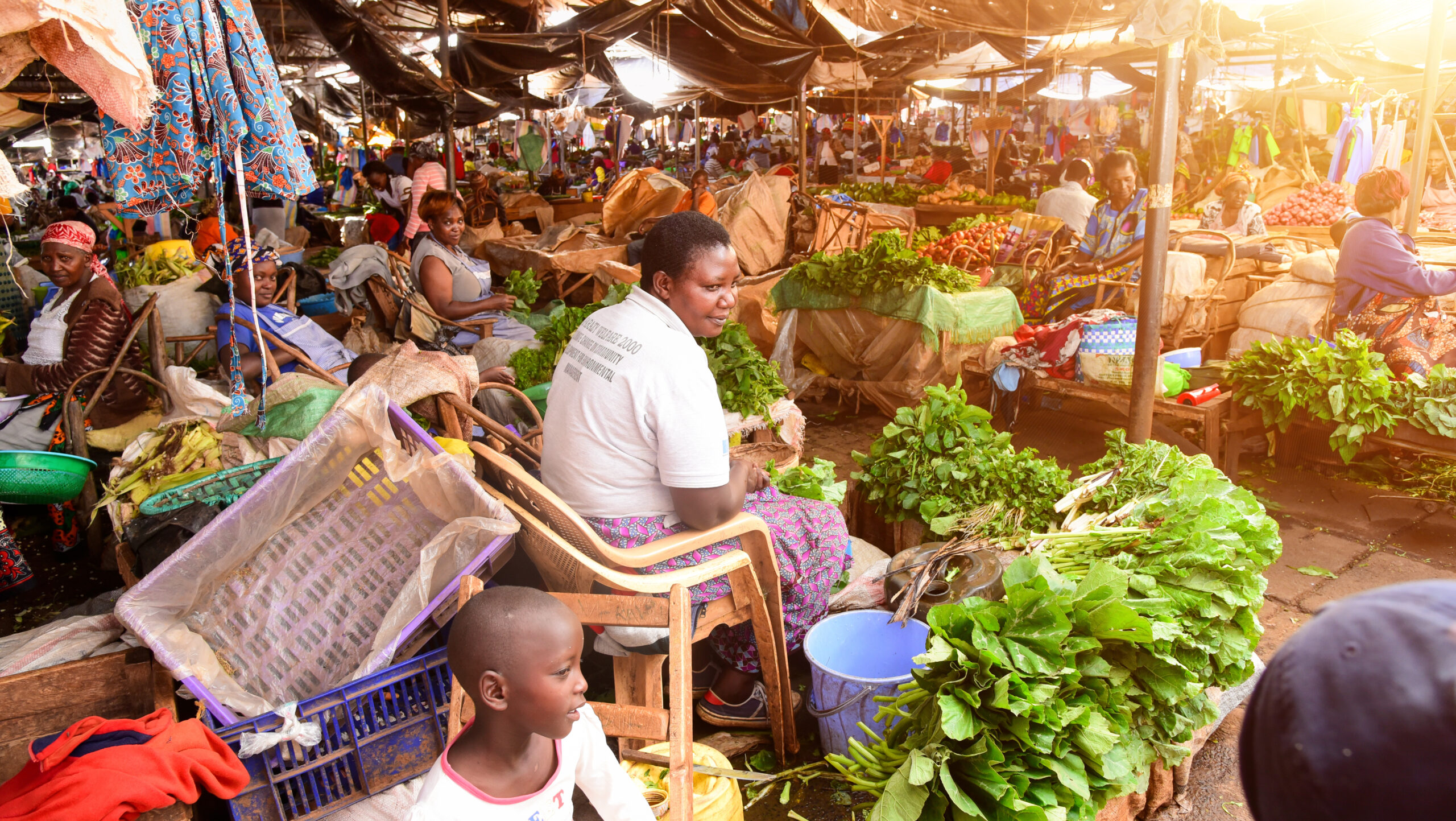Despite breakthroughs in genetic innovation such as drought-tolerant, pest-resistant, and biofortified crop varieties, many farmers continue to grow older, familiar varieties, even as the new alternatives promise higher yields, improved nutrition, and greater climate resilience. This is one reason why research efforts to quantify the impact of genetic innovation often end with documenting adoption rates—and ask, how many farmers are taking up these new varieties?
Studying adoption rates is important, yet does not provide insight into the new varieties’ impacts on smallholders’ livelihoods. To fill this gap, the CGIAR Science Group on Genetic Innovation (which will continue as the Breeding for Tomorrow and Genebanks Science Program) started a new approach to impact assessment: Designing and implementing a series of coordinated impact evaluations of genetic innovations across CGIAR centers. The focus on impacts, and the coordination across centers, offers a more comprehensive approach to understanding how new varieties affect smallholders.
To formally launch this coordinated impact assessment, IFPRI and the International Potato Center (CIP) organized a workshop on October 24-25 in Nairobi with financial support from the Standing Panel for Impact Assessment (SPIA). The workshop brought together experts, researchers, and stakeholders who will participate in a first cohort of four coordinated impact assessments in India, Kenya, and Malawi. It was the first step in aligning methodologies, sharing findings, and developing standardized indicators and frameworks to ensure consistency across these four studies.
A new approach: A multi-crop multi-country cluster randomized impact evaluation
This effort is generating rigorous empirical evidence across all five CGIAR impact areas using a set of coordinated randomized controlled trials (RCTs) and is exploring the mechanisms behind the impacts of innovative varieties. The first cohort of studies comprises four pioneering projects selected through a competitive call (Figure 1). Subsequent cohorts will build on this work, expanding the scope of impact assessment across diverse crops and regions. In selecting these studies, care was taken to ensure that they all have a comparable study design, evaluating very similar interventions through coordinated data collection tools, to facilitate synthesis and potentially meta-analysis.
Figure 1

A key message during the workshop was that this approach involves studying not only whether genetic innovations are being adopted or improving yields, but also whether they are improving incomes, diets, gender equity, and environmental outcomes.
“It’s not enough to measure adoption. We’re asking if farmers are truly better off—whether their incomes have risen, their nutrition has improved, or their resilience to climate shocks has strengthened,” said Berber Kramer, IFPRI Senior Research Fellow and one of the Genetic Impact Assessment Task Force leads.
Another goal is generating evidence that can provide a solid basis for public investments in agricultural research. Often, such investments are prioritized based on projected benefits from modeled simulations.
“We often don’t know what the real impacts of our technologies are,” said Marcel Gatto, CIP Agricultural Economist and the other Impact Assessment Task Force lead. “Impact assessments allow us to measure cost-effectiveness and ensure we’re scaling only what truly works.”
By adopting this comprehensive approach, the impact assessment team—made up of researchers from across CGIAR centers—aims to prioritize agricultural research innovations that deliver the greatest benefits across multiple dimensions. This not only helps researchers, donors, and policymakers to prioritize resources effectively but also ensures that the innovations address trade-offs, maximize positive outcomes, and create transformative change for farmers and their communities.
The workshop served as a platform for:
- Presenting proposals for cluster randomized controlled trials (cRCTs) designed to estimate impacts of breeding and delivery innovations across CGIAR impact areas, and receive feedback from other participants.
- Facilitating coordination across studies, ensuring the use of standardized frameworks and common indicators to measure downstream impacts and enable robust data pooling, through both plenary and breakout sessions.
- Strengthening linkages within and beyond CGIAR programs to enhance cross-learning and expand the initiative’s reach.
Participants discussed experimental design, gender dynamics, and scaling challenges. Teams refined a rigorous, harmonized methodology, including cRCTs for each evaluation, collection of standardized indicators, and how to leverage the opportunity to coordinate across these studies to generate evidence greater than the sum of its parts, building on team members’ prior experiences with coordinated trials and meta-analysis in the CGIAR Research Initiative on Market Intelligence.
This approach ensures findings are not only internally valid but also comparable across studies, enabling policymakers and stakeholders to make evidence-based decisions. The workshop concluded with forward-looking reflections from representatives from CGIAR’s Foresight Initiative, Gender Impact Platform, and SPIA. Their insights underscored the importance of integrating research findings into policy decisions, incorporating the impact evaluations’ findings within scenario modeling, and addressing gender-specific barriers in agricultural innovation.
What’s next?
Teams left with a clear mandate to refine their proposals, finalize indicators, and prepare for implementation over the next three to five years, with follow-up meetings planned for late 2024 and early 2025. The hope is that seeds of change planted during this workshop will grow into a robust framework for measuring impacts, and ensuring that genetic innovations truly make a difference where they’re needed most—on the ground, in the lives of farmers and their communities.
With continued collaboration and support, impact assessment within B4T has the potential to transform agriculture, ensuring genetic innovations create a legacy of resilience, equity, and sustainability for farmers and their communities worldwide.
Emily Kilonzi is a Research Officer with IFPRI’s Markets, Trade, and Institutions (MTI) Unit, based in Nairobi, Kenya; Berber Kramer is an MTI Senior Research Fellow based in Nairobi; Carly Trachtman is an MTI Associate Research Fellow, based in Washington, D.C. Opinions are the authors’.
Study teams’ focal points:
IRRI – Swati Nayak, Mosharaf Hossain, and Valerien Pede; CIMMYT – Sarah Kariuki and Michael Ndegwa; HarvestPlus/IFPRI – Rewa Misra, Berhane Guush, and Victor Taleon; CIP – Evelyne Kihiu and Jack Malit.
Task force:
Berber Kramer (IFPRI), Marcel Gatto (CIP), Carly Trachtman (IFPRI), and David Spielman (IFPRI).
Other participants included representatives from Washington State University, the University of Witwatersrand, the CGIAR Foresight Initiative, AgNexus Africa, CGIAR’s Standing Panel for Impact Assessment, the CGIAR Gender Impact Platform, and FreshCrop Kenya.







